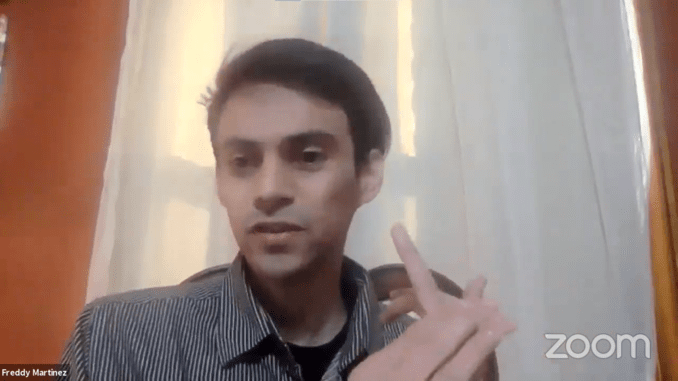
By Isaiah Colbert
Using Freedom of Information Act laws can help journalists tell the story of policing and prisons – and ensure people’s lived experiences are more accurately reflected, said reporters speaking Saturday at the Chicago Headline Club’s FOIAFest 2021.
While databases like those created as part of the Invisible Institute’s Citizens Police Data Project and the Chicago Reporter’s Settling for Misconduct were critical in gathering information, the most useful source has been the people who have been affected by police misconduct, panelists said.
Inmates who have been locked inside Illinois prisons can be the best sources of information, said Shannon Heffernan, a criminal justice reporter for WBEZ/Chicago Public Radio. If reporters keep a lookout for lawsuits and notice patterns, they can identify correctional officers and facilities that should be targeted with a FOIA request, Heffernan said.
Freddy Martinez, executive director of Lucy Parsons Labs, said it’s important to contextualize the human beings behind these stories.
“We hear so much about police abuses and misconduct that sometimes there’s a desensitizing nature,” Martinez said. “Being in community with the people who experience this really helps inform how we should be thinking about our reporting.”
Getting information as a result of a FOIA request can seem like a monumental victory, but Heffernan said journalists should view the information with the same skepticism as an interview or other sources of information.
Adam Mahoney, an environmental justice reporter for Grist, said everyday citizens have a right to access information and make abuses public, which is why FOIAS should be used by everyone.
Mahoney said reporters must move beyond regurgitating police documents and other information provided by government agencies because they are often racist, classist and anti-Black, and instead should center stories around people’s lived experiences.
“FOIA is like a piece of the pie, but FOIA is not the whole thing,” he said. “Always remember these are human beings behind the words and human beings behind the numbers.”

